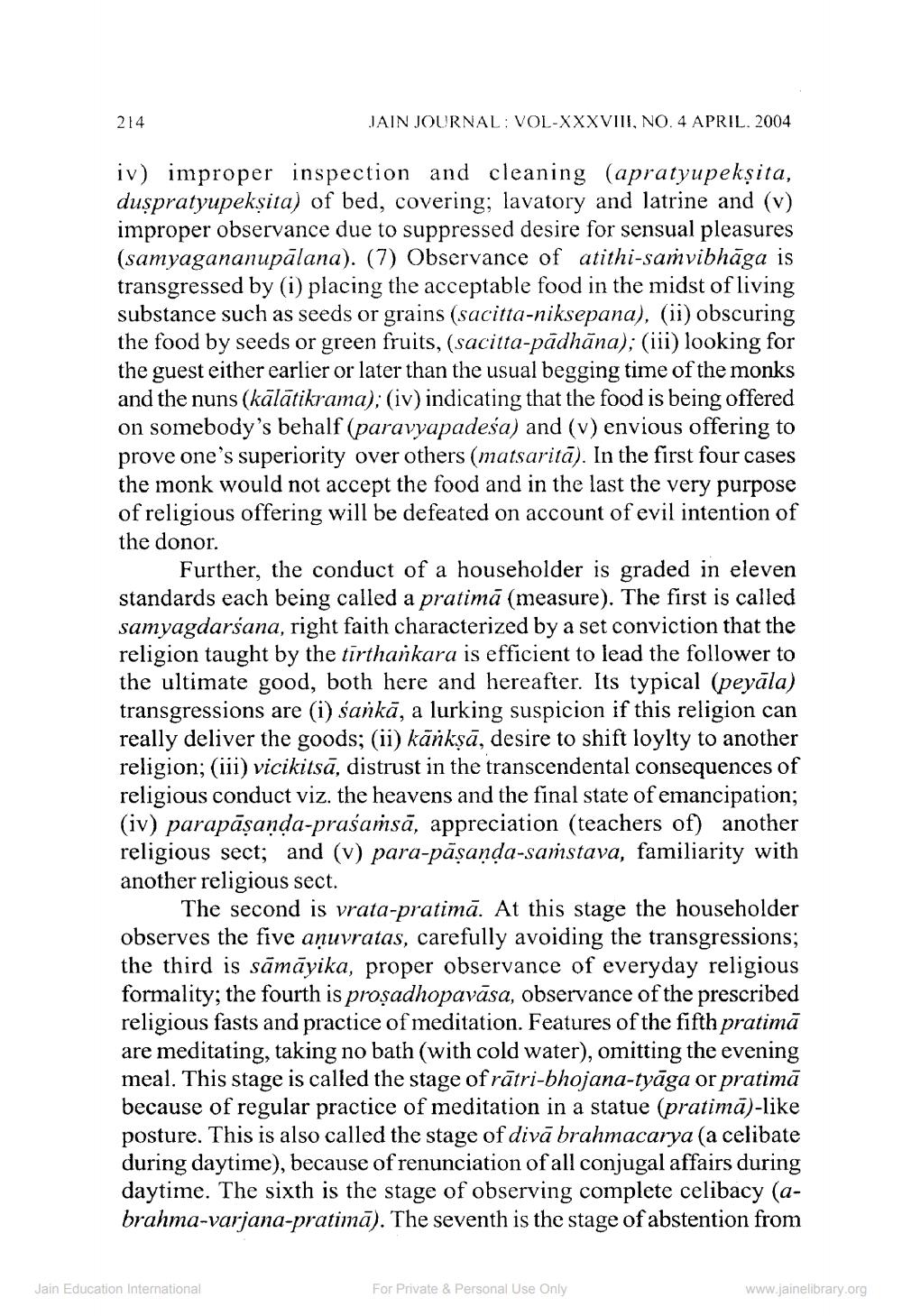________________
214
JAIN JOURNAL VOL-XXXVIII, NO. 4 APRIL. 2004
iv) improper inspection and cleaning (apratyupekṣita, duspratyupekṣita) of bed, covering; lavatory and latrine and (v) improper observance due to suppressed desire for sensual pleasures (samyagananupālana). (7) Observance of atithi-samvibhāga is transgressed by (i) placing the acceptable food in the midst of living substance such as seeds or grains (sacitta-niksepana), (ii) obscuring the food by seeds or green fruits, (sacitta-pādhāna); (iii) looking for the guest either earlier or later than the usual begging time of the monks and the nuns (kālātikrama); (iv) indicating that the food is being offered on somebody's behalf (paravyapadeśa) and (v) envious offering to prove one's superiority over others (matsarita). In the first four cases the monk would not accept the food and in the last the very purpose of religious offering will be defeated on account of evil intention of the donor.
Further, the conduct of a householder is graded in eleven standards each being called a pratimā (measure). The first is called samyagdarśana, right faith characterized by a set conviction that the religion taught by the tirthankara is efficient to lead the follower to the ultimate good, both here and hereafter. Its typical (peyāla) transgressions are (i) sankā, a lurking suspicion if this religion can really deliver the goods; (ii) känkṣā, desire to shift loylty to another religion; (iii) vicikitsā, distrust in the transcendental consequences of religious conduct viz. the heavens and the final state of emancipation; (iv) parapaṣaṇḍa-prasamsa, appreciation (teachers of) another religious sect; and (v) para-pāṣaṇḍa-samstava, familiarity with another religious sect.
The second is vrata-pratimă. At this stage the householder observes the five aṇuvratas, carefully avoiding the transgressions; the third is sāmāyika, proper observance of everyday religious formality; the fourth is proṣadhopavāsa, observance of the prescribed religious fasts and practice of meditation. Features of the fifth pratimā are meditating, taking no bath (with cold water), omitting the evening meal. This stage is called the stage of rātri-bhojana-tyāga or pratimā because of regular practice of meditation in a statue (pratimā)-like posture. This is also called the stage of divā brahmacarya (a celibate during daytime), because of renunciation of all conjugal affairs during daytime. The sixth is the stage of observing complete celibacy (abrahma-varjana-pratima). The seventh is the stage of abstention from
Jain Education International
For Private & Personal Use Only
www.jainelibrary.org




